Close Only Counts in Horseshoes: More Amigurumi Design Experiments
As I mentioned at the end of my last post, I worked on redesigning the head/neck part of my figure to move the "sphere" of the head farther forward. I was trying to figure out the geometry with some diagrams in the drawing application Inkscape but I was driving myself nuts trying to design the geometry and also figure out a good way to use the tool for that at the same time, so I switched to pencil-and-paper to figure out the stitch-counts that would correspond to different sections of the 3D shape I was trying to achieve.
The positioning of the head was a big improvement with this design. There are still a few things that could potentially be tweaked (I want to see if I can improve the pattern so I'm not stitching decreases into decreases since that tends to leave gaps, or maybe see if an invisible-decrease stitch works better than the single-crochet-two-together stitch that I've been using).
However, it's still not quite as stable as I'd like it to be. I thought the bottom of the feet might be an issue, since they don't lie quite flat so I think the overall figure ends up a little wobbly.
I tried two other foot designs to try to address that.
With the foot design I started with, when it transitions from the side to the sole of the foot it does it with a round of back-loop-only stitches so I can get a tighter corner. The new design does a round of front-loop-only single crochets on that row, then a round of back-loop-only slip stitches, and then jumps back to the unused back-loops to continue the original pattern. The single-crochet/slip-stitch rounds create a kind of L-shape the rings the foot and creates a flat ridge on the outside, like a horseshoe on a horse's hoof.
I think the stability has improved over the previous one. I think there may still be some work to do, though. I think that this foot design may end up with a natural angle at the ankle, I'm not sure how much of that is due to the particulars of the way I'm doing the top of the foot and how much is a consequence of the "spiral" effect that doing amigurumi-style continuous rounds introduces.
Also for some reason I seemed to be making more mistakes than usual with this last one, even though I was hoping to actually be improving on that. I probably ought to just use a stitch-marker at the beginning of every round so that I can detect the mistakes early enough to be able to fix them, rather than just when I start to suspect something is wrong, since that's usually too late to realistically back up to a known good state.
I'm not sure what the next step in the experiment will be, it doesn't feel quite done yet, though.
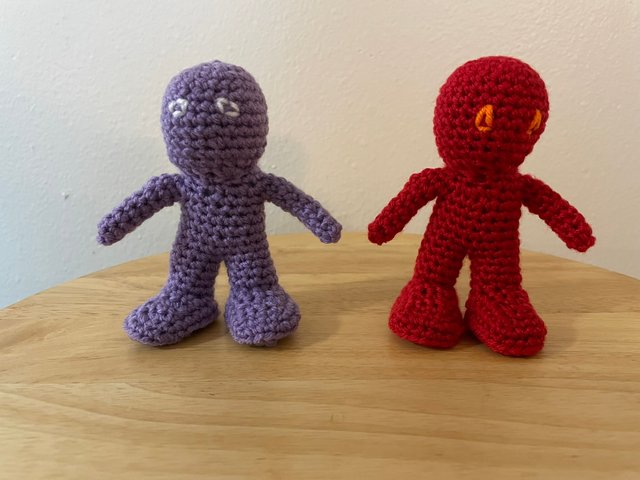
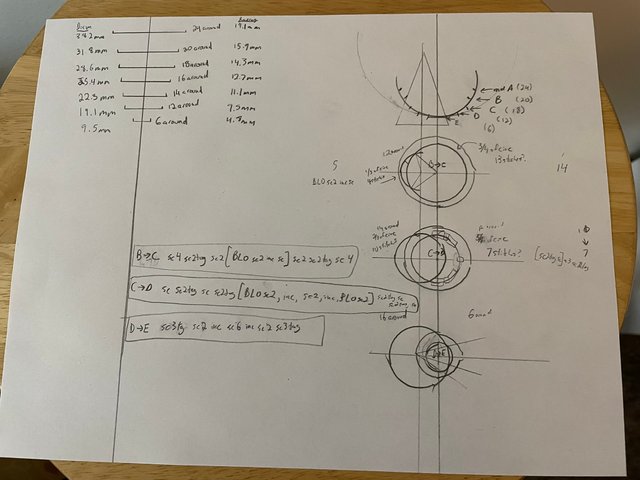
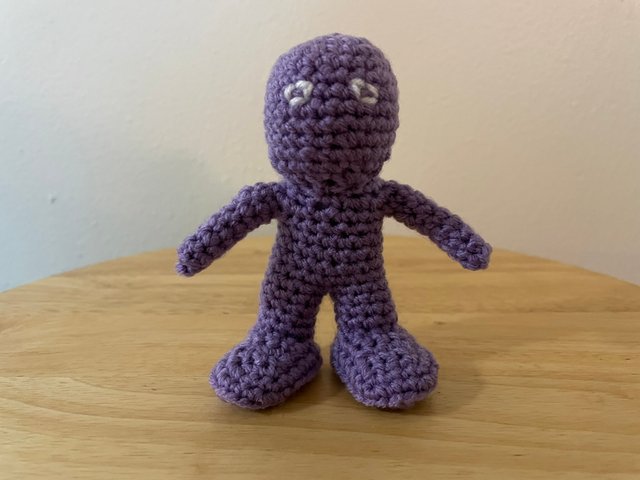
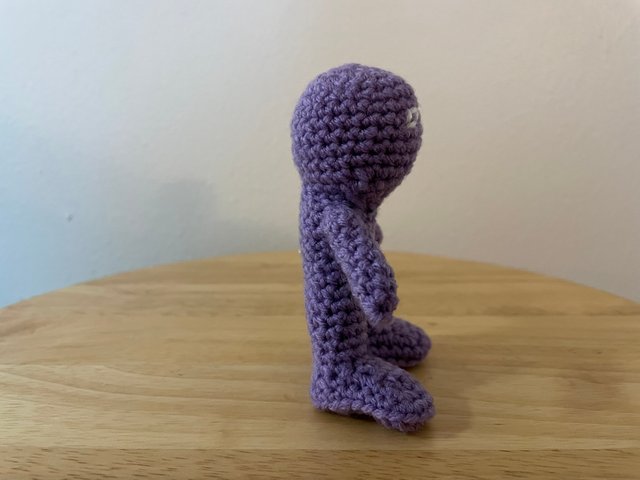
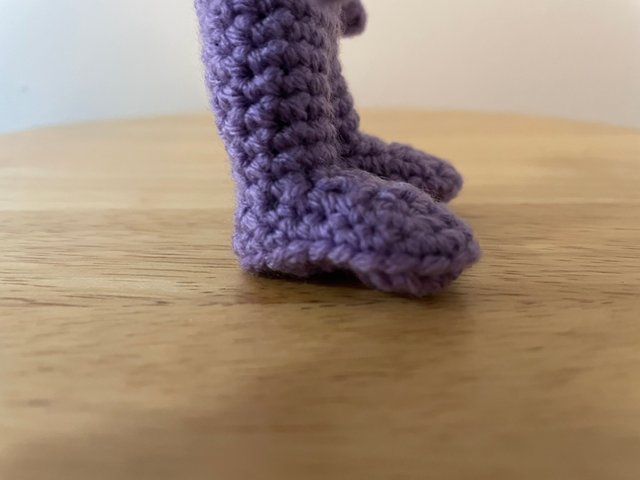
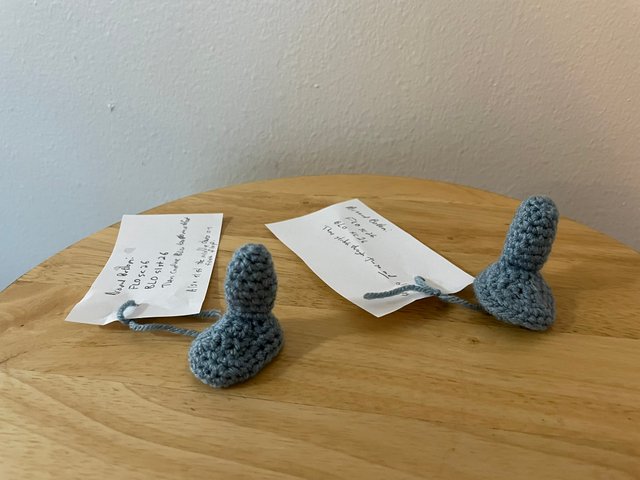
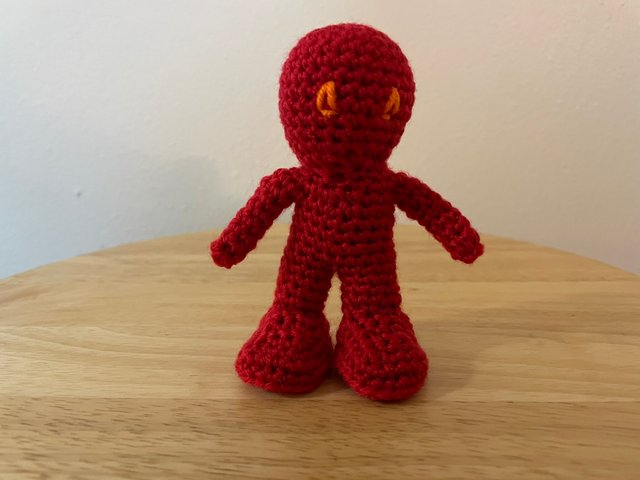
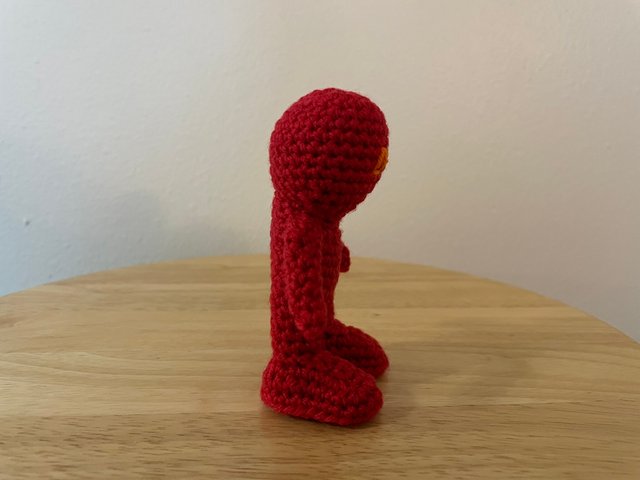
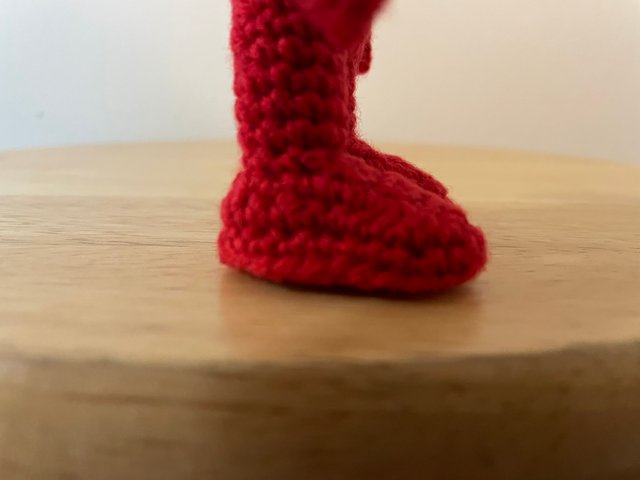
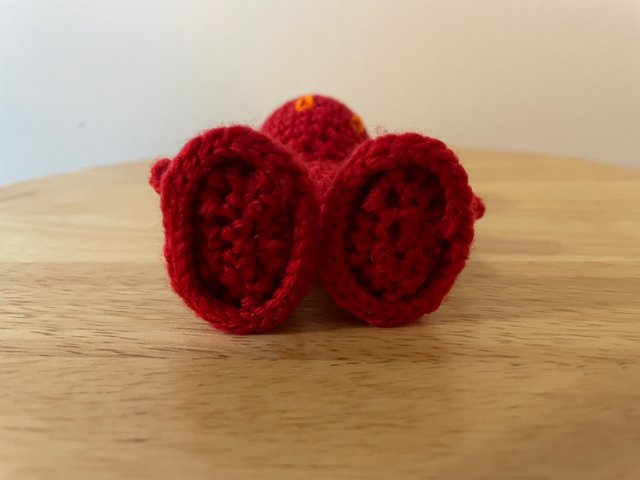
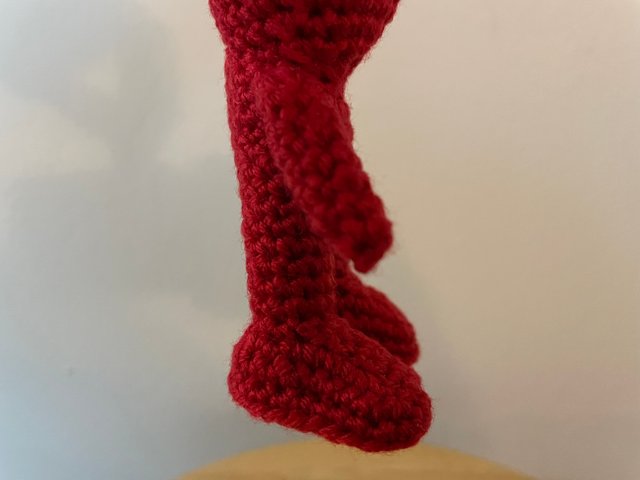
Hello @danmaruschak
I think your crochet figure is coming along well. I like the solid colour - it reminds me a bit of the Aardman Morph character. I'd be interested to see how the leg length and leg angle could affect the stability too.
I was also particularly interested in your mention of the single crochet decreases.
Normally I follow this sort of method :
I always thought this was the only way of making decreases, but in my latest crochet post where I made a little bird for a wind spinner, I actually used a-new-to-me method described by the youtuber which I felt was very neat. You just need to insert your crochet hook into the front half of the single crochet stitch (or stitches) that you want to decrease rather than inserting it into the whole stitch. The video below is for clarification of what I mean from 26:47 :
Yes, this different type of decrease is exactly what I'm experimenting with on my next experiment. From the terminology I've heard the first type is "single crochet two together" since you're doing a single crochet stitch to join two stitches together, and the second type is the "invisible decrease" stitch. I know I've used invisible decreases sometimes in the past but I forget why I gravitated back to using single-crochet-two-together (in the past I've let long stretches of time pass where I wasn't actively engaged in the craft so I end up forgetting some things), it might just have been because the invisible decrease is a trickier stitch to do since you need to get single loops.
I've mostly been doing that to just keep things simple while I'm experimenting with the structure, but I agree it does give the completed figure an interesting look.
Thank you for the reply @danmaruschak. I didn't know the proper names for those two types of decreases.